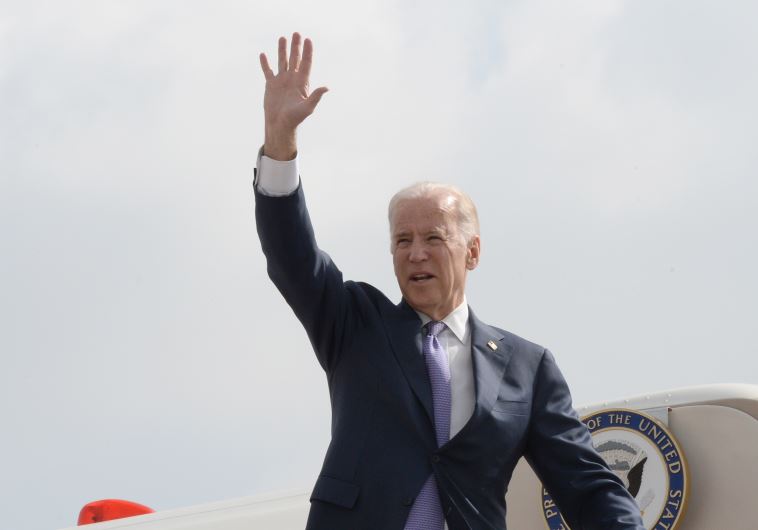Biden - The Irishman with the Jewish 'neshama'
Biden is among one of those rare breeds of politicians who is larger than his office, even if that office is the vice presidency of the United States.
 VP Joe Biden departure from Israel. March 10, 2016(photo credit: MATTY STERN, US EMBASSY TEL AVIV)Updated:
VP Joe Biden departure from Israel. March 10, 2016(photo credit: MATTY STERN, US EMBASSY TEL AVIV)Updated: